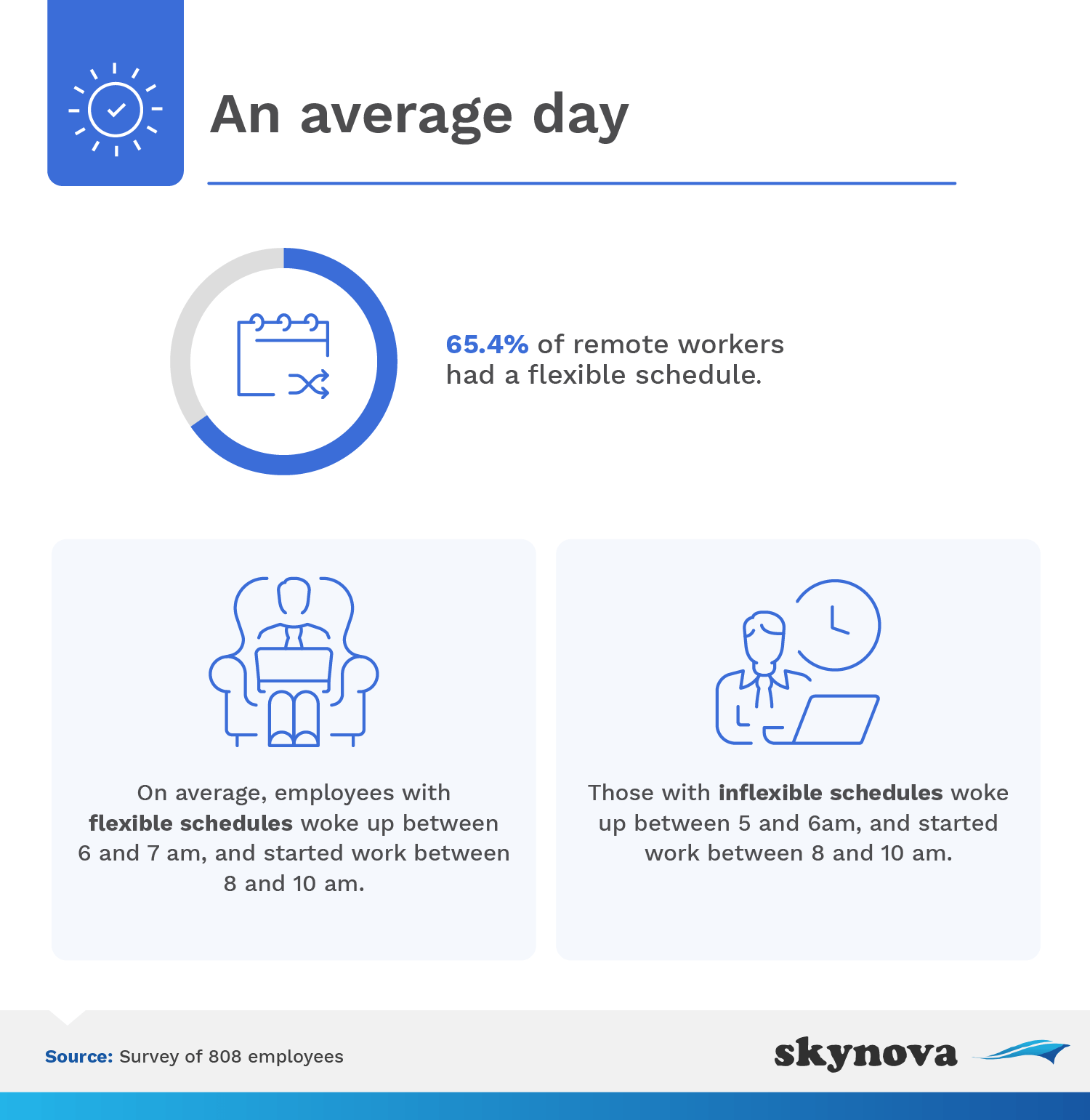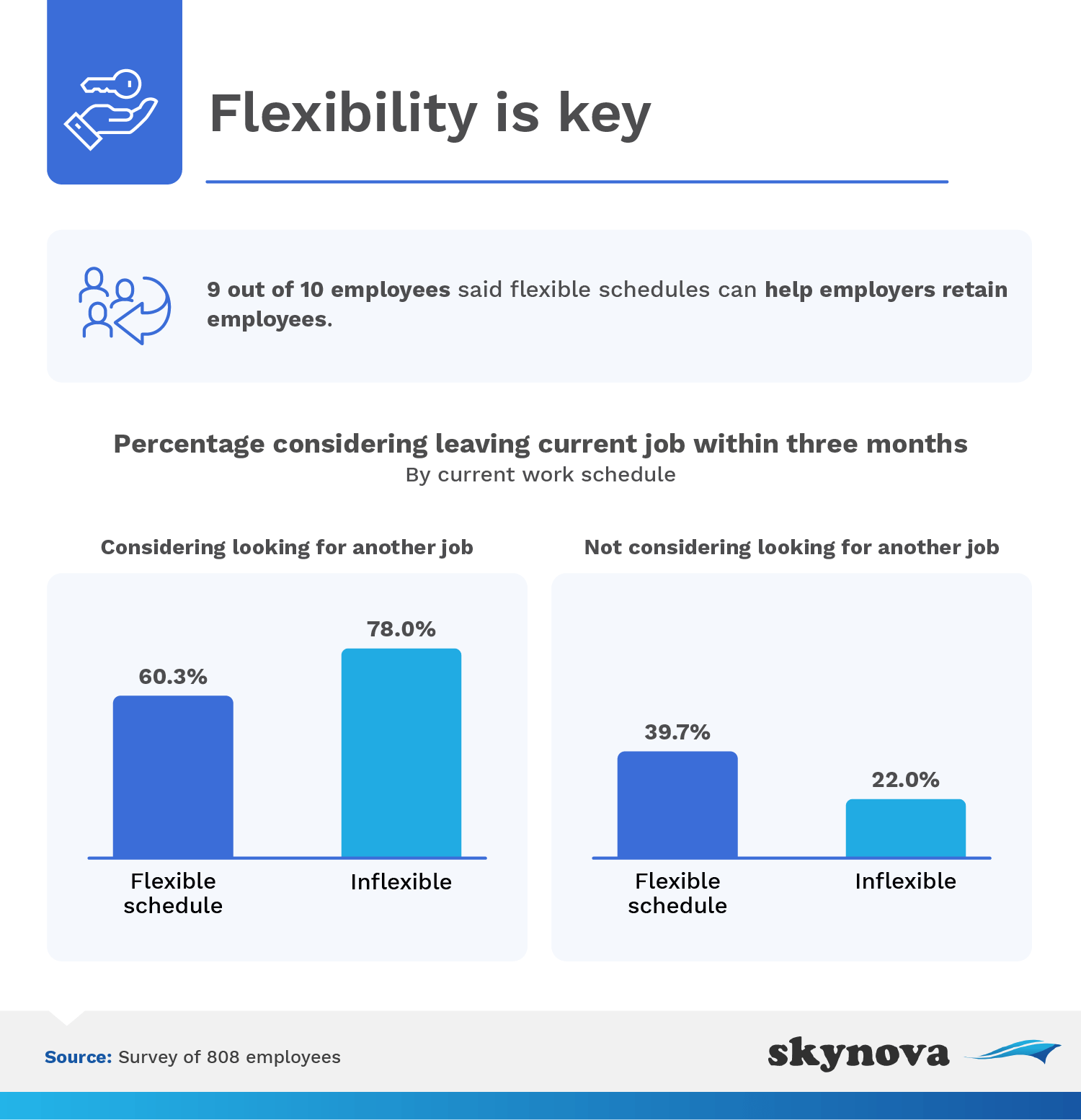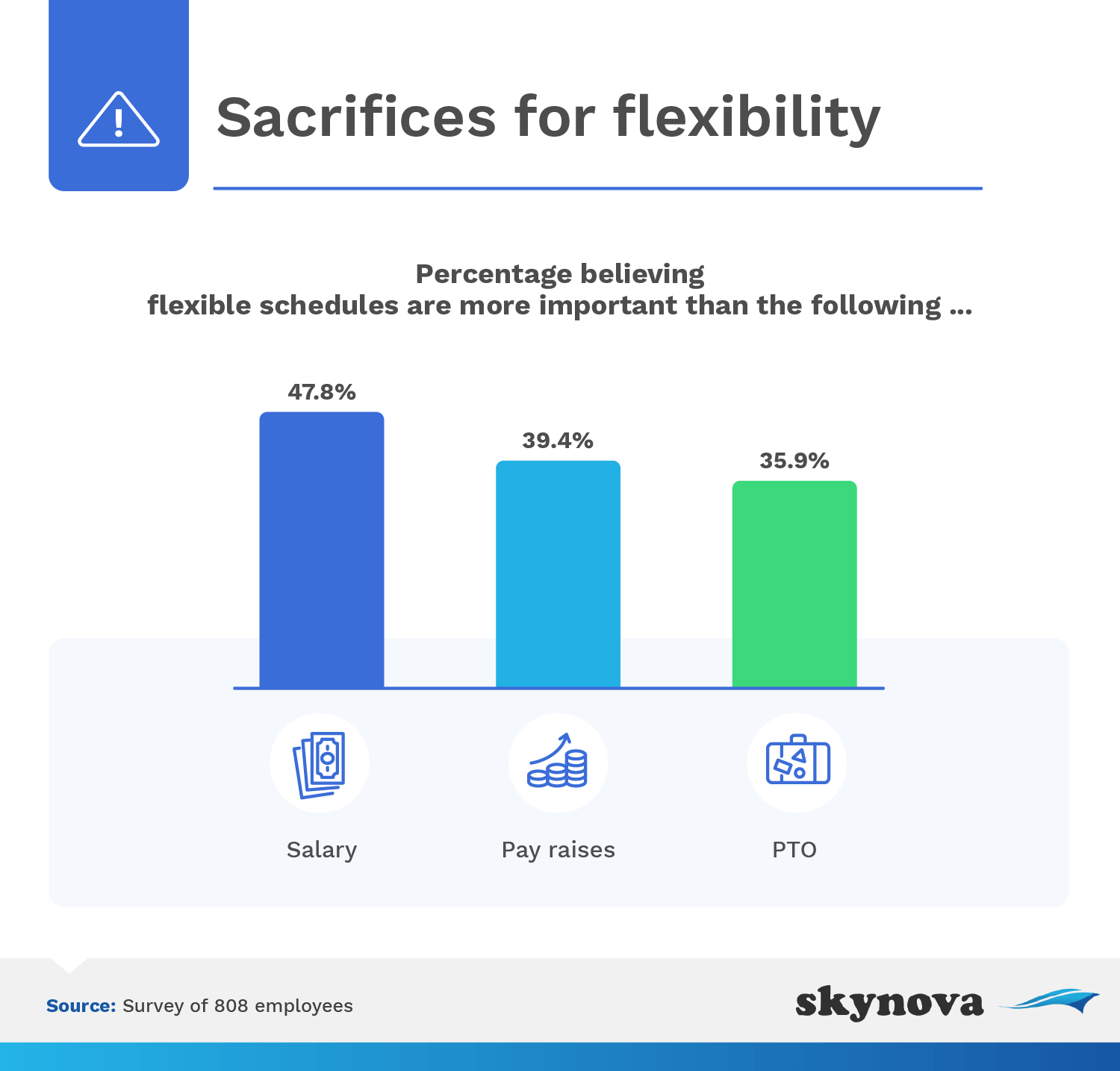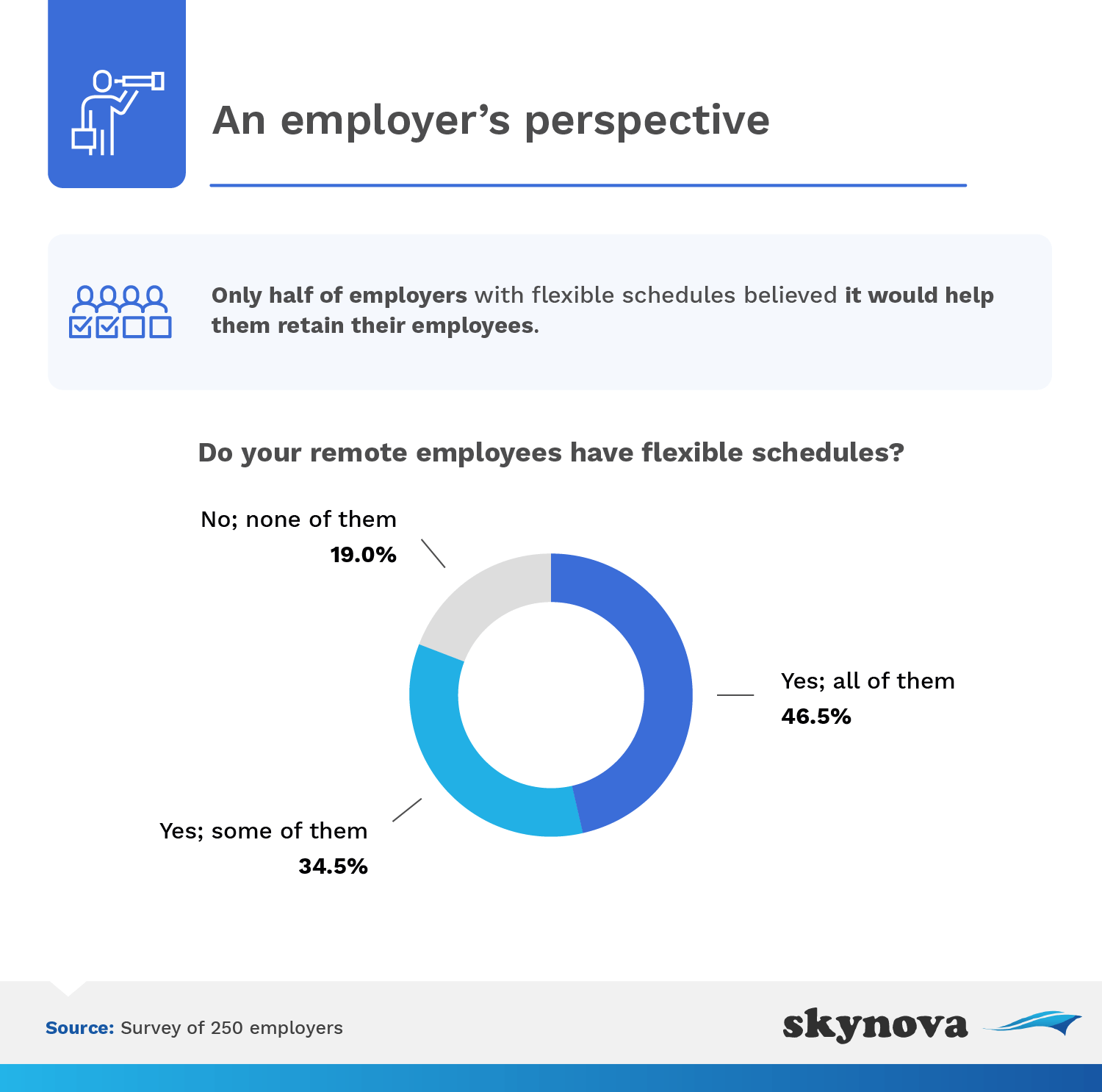
|
With the labor shortage giving workers more leverage than ever before, it’s important to understand what keeps them loyal to their employer. Is a flexible work schedule absolutely crucial to a happy, tenured employee? Are those with flexibility enjoying more sleep, better hours, or increased satisfaction at work? After speaking to a mix of more than 1,000 employers and employees, we have some answers.
Our study begins with a look at the daily routine of the average worker — broken down hour by hour. We asked each respondent to report the time they usually wake up, start and end their workday, and go to bed. We then compared the answers by whether their employer allowed a flexible schedule.

Results showed that there was a direct correlation between a flexible work schedule and a healthy, manageable daily routine. Employees who were allowed some flexibility were waking up at a more reasonable hour (between 6 and 7 a.m.) than those who deemed their schedules rigid and woke as early as 5 a.m. Flexible workers were also having to work fewer hours total — starting the workday at the same time as the inflexible group while clocking out an hour earlier. Countless studies have demonstrated the superior productivity of shorter working hours.
With flexibility playing a significant role in everything from sleep to working hours, we decided to explore further. This section of our study looks at how flexibility affects employees’ willingness to stay with their current company.

As expected, employees were overwhelmingly in support of flexibility in the workplace. A staggering 90% agreed that flexible schedules could help employers retain their workers. The data also proved that this belief was based on more than just emotion or hypothesis.
When we asked employees whether they were considering leaving their job in the near future, those with an inflexible work schedule were much more likely to answer yes. In fact, 78% of respondents with rigid schedules said that they were interested in looking for a new job. They were almost 18 percentage points more likely to say so than those with flexible hours.

Employers were less likely than their employees to appreciate flexible work schedules, although half still agreed that this dynamic could help them retain workers. Compared to the 90% of employees that felt this way, it appears that some employers may be out of touch with what employees really want and value.
In all likelihood, however, the results of studies like this one (as well as competition increasingly jumping on the flexibility bandwagon) will encourage more employers to see the benefits of this new way of working. Even now, only 19% of employers had zero employees on a flexible work schedule.
To determine just how valuable flexibility is to the average employee, the last section of our study asked respondents to rank the importance of a flexible work schedule compared to other rewards or benefits.

Nearly half of the employees we spoke to felt flexibility outweighed salary in terms of importance. This is a major indicator of the value of a flexible schedule, since, for most employees, salary is one of the biggest considerations when applying for a position in the first place. Even though it’s impossible to put a price on it, flexibility is clearly crucially vital to employee well-being.
When it came to paid time off and work perks, employees were less willing to give those up in exchange for a flexible schedule. Despite this, more than 1 in 3 employees was willing to trade their PTO, while 31.3% considered flexible schedule to be more important than work perks.
All evidence points to flexibility being a key factor in employee retention, happiness, productivity, and the elusive work-life balance. Employees with a flexible schedule shared that they worked fewer hours overall (which often leads to higher productivity), thought about leaving less, and even valued flexibility over a higher salary.
Fortunately, increasing the flexibility of employee schedules appears to be a rare win-win scenario for employers: It creates happier employees, reduces the chance of experiencing a labor shortage, and could even help improve the company’s bottom line. Moreover, there are many examples for companies to emulate and learn from. With employee retention becoming an enormous pain point, flexibility feels like the easy fix.
Skynova is dedicated to helping small businesses thrive by providing sophisticated yet easy-to-use software for creating invoices, accounts, timesheets, and more. Skynova also creates in-depth articles about financial topics that are of value to the average business owner.
This study uses data from a survey of 808 employees and 250 employers located in the U.S. Survey respondents were presented with a series of questions, including attention-check and disqualification questions. 54.6% of respondents identified as men, while 45.4% identified as women. Respondents ranged in age from 20 to 71 years old with an average age of 38. Generationally, 21.3% of respondents were Gen Zers, 33.1% were millennials, 34.2% were Gen Xers, and 11.4% were baby boomers. Participants incorrectly answering any attention-check question had their answers disqualified. This study has a 3% margin of error on a 95% confidence interval for employees and a 6% margin of error on a 95% confidence interval for employers.
Please note that survey responses are self-reported and are subject to issues, such as exaggeration, recency bias, and telescoping.
Much of your audience is likely working from home already. Feel free to share this research with them or with people wanting to make the case to their employer. Just be sure to do so for noncommercial purposes and to link back to this page for full access to our research and methodology.